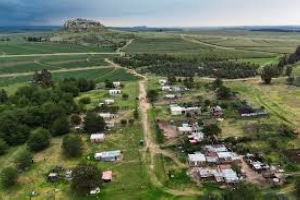Why the DA’s FedCo is likely to endorse virtual elective conference

Some DA leaders believe the party’s proposed virtual elective conference will dominate this weekend’s Federal Council agenda, but there is a strong feeling the proposal will be adopted.
Speaking to News24, DA leaders, who had at first expressed their reservations over the virtual conference, have made a U-turn now saying, “it can be done”.
In May, the DA’s Federal Executive (FedEx) endorsed the idea and recommended to the party’s Federal Council (FedCo) that they hold their leadership election via a virtual platform at the end of October – a development believed to work in favour of interim leader John Steenhuisen’s bid to become the permanent leader.
The concept, believed to be the brainchild of federal council chair Helen Zille, has since taken traction in most provinces.
“We are going ahead. The reality is that this Covid-19 is not going to disappear anytime soon, so the show must go on. We have to embrace this fourth industrial revolution (4IR) and what better way than for the DA to kickstart this in the country,” one party leader and member of the council told News24.
Zille said the deadline for the annual general meeting was 31 August – but declined to divulge this weekend’s agenda.
Western Cape chair Bonginkosi Madikizela echoed these words and added that the province was gearing up for its own elective regional and provincial conferences, which would be held virtually.
“If we are talking 4IR, we must embrace technology and different ways of doing things. If we don’t know when the vaccine will be found, we must find innovative ways for congresses. We, in the province, put measures in place to accommodate everyone”.
The accommodation of delegates was part of Mbali Ntuli’s argument against the conference.
She is one of three leaders vying for the top post; the others are Steenhuisen and Gauteng leader John Moodey.
She warned it would be a mistake to forge ahead with the conference, and also raised concerns about those who would be disadvantaged, if it was held.
Ntuli said many areas, including most rural and some urban communities, still struggled with internet connectivity.
She emphasised that the conference could not guarantee full connectivity for all participants throughout the conference, which would only result in many delegates being left out of the processes.
Ntuli said this would also interfere with the party’s annual general meetings, which are tasked with electing delegates for congress and debating resolutions and constitutional amendments.
But Nqaba Bhanga, a DA leader in one of the country’s most impoverished provinces – Eastern Cape – believes his province is ready for a virtual congress.
Speaking to News24, Bhanga said he was already organising meetings with structures virtually.
The Eastern Cape was the first to stamp its approval of the virtual congress, indicating that it would hold its own congress virtually in August.
“It’s working. We must just change mindset and, for some, change is difficult.
“It is going to take time for people to understand 4IR. As a province, we are happy; we are the first to take a bold step of exploring 4IR. We will deliver a quality conference,” Bhanga said.
The FedCo meeting is expected to hear some fierce resistance from Moodey, who threatened to take the matter to court.
In a letter to party members, Moodey said that any virtual conference should be subject to a declaratory order from the high court as to its legality.
He would also be requesting direction, clarity and certainty on the conference.
“I cannot speak about my approach in the media, especially prior to such an important meeting,” Moodey said.





